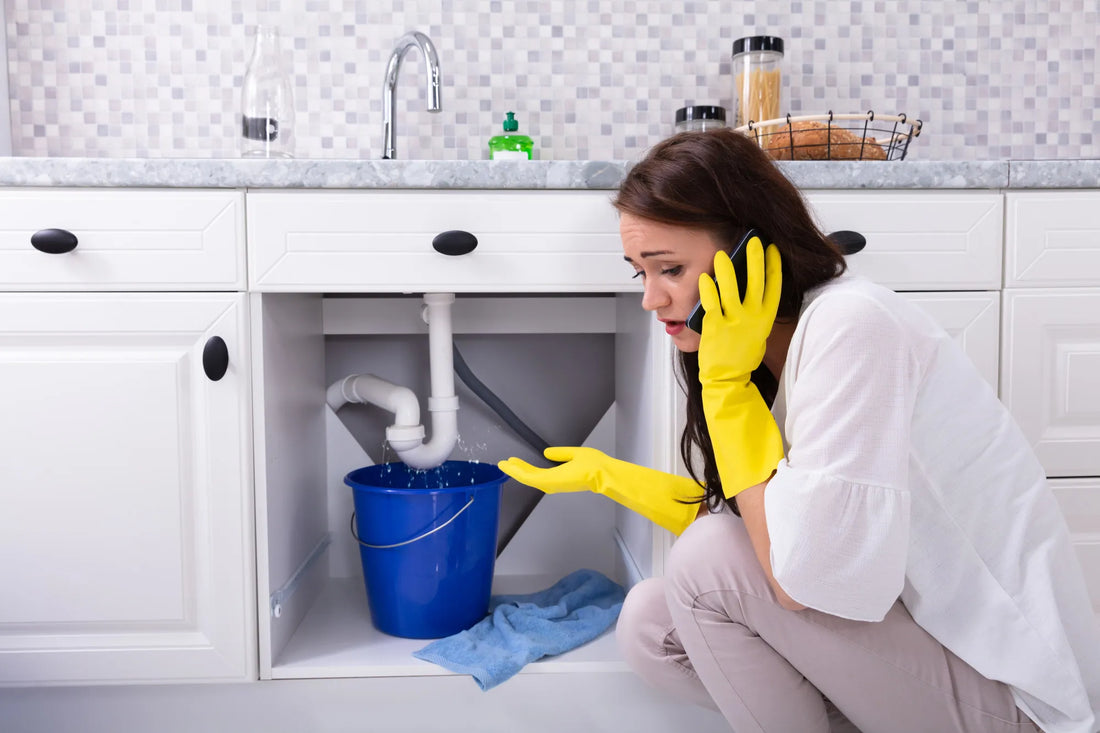
Plumbing Problems:
Share
Plumbing : What Every Homeowner Needs to Watch Out For
Plumbing is one of those systems we don’t think about until something goes wrong — and when it does, it can turn your home life upside down. Whether it's a slow drain, a leaking pipe, or a total system failure, plumbing issues have a way of escalating quickly if left unattended.
In this article, we’ll explore the most common plumbing problems faced by Australian homeowners, what causes them, and how to know when it’s time to call in a licensed plumber.
Why Plumbing Maintenance Matters
The plumbing system in your home is more than just taps and toilets. It manages everything from your drinking water and laundry to hot water systems, dishwashers, stormwater drainage, and even gas lines. When any part of that system fails, the impact can range from a minor inconvenience to serious structural damage.
Regular maintenance ensures that problems are caught early, appliances run efficiently, and you’re not caught off guard by a burst pipe or unexpected flood.
Common Plumbing Issues in Australian Homes
1. Leaking Taps and Pipes
That slow drip might seem harmless, but over time it wastes thousands of litres of water and can lead to hidden damage in cabinetry and flooring. Leaks are often caused by worn washers, corroded pipes, or loose fittings.
2. Blocked Drains
Hair, grease, soap scum, and foreign objects can accumulate inside drainpipes. Over time, this restricts water flow, causes backups, and may even lead to complete blockages that require professional clearing.
3. Running Toilets
A toilet that won’t stop running can waste up to 750 litres of water a day. It’s usually caused by a faulty flapper valve, worn-out seals, or problems with the float mechanism.
4. Low Water Pressure
Low pressure makes everyday tasks like showering or washing dishes frustrating. It can be due to sediment build-up in pipes, an aging pressure regulator, or even unnoticed leaks somewhere in your system.
5. Hot Water System Failures
Few things are worse than running out of hot water — especially in winter. Hot water systems can fail due to thermostat issues, heating element damage, or sediment build-up inside the tank. Some signs include inconsistent temperature, strange noises, or discoloured water.
6. Gas Line Issues
For homes using natural gas for heating or cooking, damaged gas pipes are a serious safety risk. If you smell gas or notice hissing sounds near appliances, leave the area immediately and call emergency services before contacting a plumber licensed for gas.
Plumbing Problems Unique to Australia
Australia’s plumbing systems face challenges that aren’t common elsewhere in the world:
-
Expansive soils in regions like Victoria and NSW can shift with moisture, affecting underground pipes.
-
Hard water in some areas leads to mineral build-up and corrosion in hot water systems.
-
Tree root invasion is common in older suburbs where clay pipes or aging infrastructure provide easy access for roots.
These factors make regular inspections even more important — especially for homes more than 15 years old or those with original plumbing.
The Cost of Plumbing Repairs in Australia
Plumbing costs vary depending on the issue and urgency. Here’s a general breakdown of what homeowners might expect:
| Plumbing Service | Average Cost (AUD) |
|---|---|
| Fixing a leaking tap | $80 – $150 |
| Clearing a blocked drain | $150 – $300 |
| Replacing tapware or fittings | $100 – $250 |
| Repairing burst pipe | $200 – $500 |
| Installing new toilet | $300 – $600 |
| Hot water system service | $180 – $350 |
| Hot water system replacement | $1,000 – $2,500+ |
Emergency call-outs outside business hours may include a surcharge of $150–$300 depending on the severity and location.
When Should You Call a Professional Plumber?
Some small plumbing jobs like changing tap washers can be done by confident DIYers — but most plumbing work should only be performed by a licensed professional. In fact, under Australian law, certain plumbing and all gasfitting work must be completed and certified by a licensed practitioner.
You should always call a professional when:
-
There’s water leaking into walls, ceilings, or floors
-
A drain is completely blocked and won’t clear with plunging
-
Your hot water system is making strange noises or smells
-
You suspect gas leaks or smell sulphur
-
Water pressure suddenly drops across multiple fixtures
-
You’re renovating bathrooms, kitchens, or outdoor plumbing
Licensed plumbers have the tools and experience to inspect problems thoroughly, repair them safely, and issue compliance certificates where required.
Preventative Maintenance Tips
Keeping your plumbing system healthy doesn’t have to be complicated. A few preventative steps can make a big difference:
-
Clean drains regularly using boiling water or vinegar and baking soda
-
Avoid flushing foreign objects like wipes, sanitary products, or excessive paper
-
Check under sinks for moisture or odours every few weeks
-
Flush your hot water system annually to reduce sediment build-up
-
Have a licensed plumber inspect your pipes and taps every 1–2 years
If you’re on the Simonds Plus platform, booking a maintenance call with a local plumber is quick and easy — and it could save you from a costly emergency down the line.
Final Thoughts
Plumbing problems rarely fix themselves — and the longer they’re left, the worse (and more expensive) they tend to become. From slow leaks to major bursts, understanding the warning signs and staying on top of maintenance is key to protecting your home.
If something doesn’t seem right, don’t wait. Simonds Plus connects you directly with trusted local plumbers who are licensed, insured, and ready to help — before your plumbing turns into a disaster.





